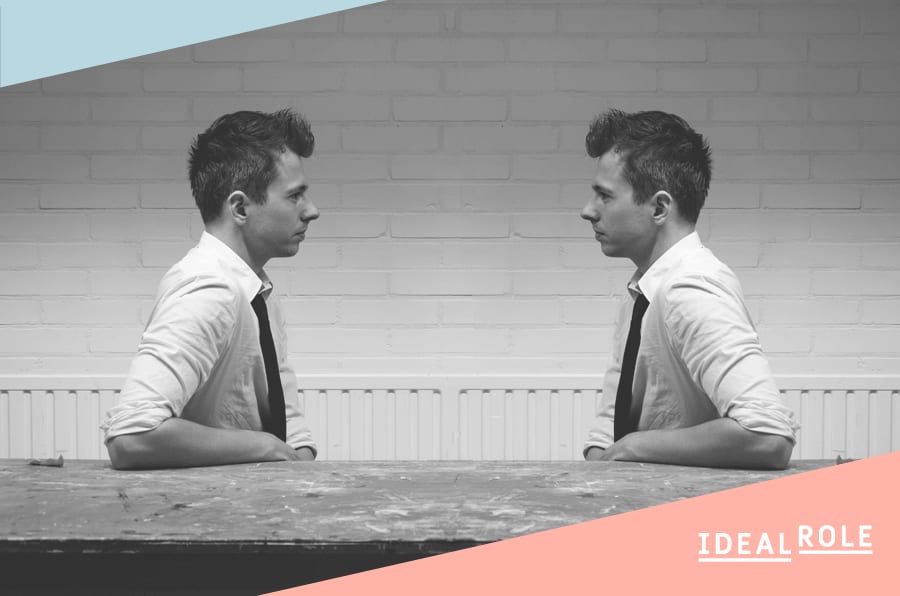We’ve all walked into a room full of people. The first thing we do is scan the crowd for a familiar face. Preferably, someone, we like. Failing that, most of us will take almost anyone we know. Anything to stop the discomfort of being alone and exposed.
Recently I had this experience when I went to an after-work event. Not knowing anyone else attending, I arrived 15 minutes late to avoid awkwardly standing around alone. Anticipating tardy arrivals, the organisers had smartly added a half hour buffer. And thus I found myself walking slowly into a room scanning unfamiliar faces.
Everyone was talking around a table, helping themselves to the drinks and snacks. Many were smiling, and their expressions were warm. We were all there for the same talk, so we had that in common. Yet I hesitated. Something deep in the back of my mind caused me to pause. They were all women.
While this must be a comic triviality for the many women who face the opposite situation on a daily basis, the last time I could remember being the only man in a group was in the odd Anthropology tutorial in University. I never had a bad experience then, so what was holding me back?
The Opposite of Comfort is Discomfort
My irrational pause can be explained by affinity bias, which is a tendency to prefer people similar to ourselves or someone we know and like. This likeness can be the way we look, our backgrounds, shared experiences or common interests.
In my case, I didn’t see anyone that looked like me. In my brain’s wiring visual cues seem to be more influential than the fact that we shared a common interest in the topic of the meetup. Perhaps this was because I was sure of the way they looked, but was not certain of their views and opinions.
It’s uncomfortable knowing I’m biased, but it’s a form of unconscious bias we all share. We all want to be around people that make us comfortable, and often that occurs when we can more easily relate to the other person. It may not be correct, but we assume we can better understand each other.
If affinity bias means we like being around people that make us comfortable, is the opposite also true? Will we be uncomfortable in the presence of people not like us?
Research has shown that generally, yes, we will be more uncomfortable. It has also demonstrated that this will make us smarter. We prepare better, anticipate other viewpoints and expect that reaching consensus will take effort. Consequently, we produce better results.
Affinity Bias in the Workplace
As a positive bias, we are likely to favour people we have an affinity for and may not be aware of how this is impacting us.
We like to believe that we are ethical an unbiased, and are capable of making objective and rational decisions in our, and our company’s, best interests. However, in reality, more than two decades of research shows that most of us fall woefully short of our inflated self-perception.
This overconfidence is particularly true when we are judging people. Whether deciding on who to hire, promote or give an opportunity, our bias can impact both our behaviour and our decision.
For example, picture yourself in a job interview. The candidate opposite you is shifting in their seat. They are breathing deeply, trying to control the rising panic you see in their eyes.
If you feel some affinity for them, you’re more likely to smile, encourage them and try to put them at ease. All of which can impact the candidate’s performance, and your estimation of them and how well they’d “fit” in with the team.
In addition to hiring, affinity bias can also affect who gets promoted or other opportunities to grow.
How to Avoid Affinity Bias
While it’s not possible to eliminate affinity bias, there are ways to avoid its impact. Most importantly, wherever possible, take time to get to know people better. The more we know about each other, the more likely we are to find that common ground that enables us to get comfortable, relate to each other and get along.
Additionally, remember that we can have an affinity for people that look not just like ourselves, but someone we know and like. The more people we know that are different from ourselves, the broader the group of people we feel comfortable around.
If you’re not sure about this, think back to a time when you were in a group with people you didn’t know. It could have been a trip, work or university project, or even school camp. Remember the sense of comradery that shared experience gave you. How much closer and comfortable you were with each other as a result.
When hiring our efforts can be constrained by time and the fuzzy concept of “fit”. Two good ways to mitigate these effects are:
- Have a diverse group of people conduct the interviews. Different perspectives and affinities should help to balance the hiring discussion.
- When hiring for “fit”, be clear what this means. It would be best if you aimed to find shared values, as these are what will lead to success for you, the candidate, your team and the company.
Find Common Ground
We can never entirely rid ourselves of affinity bias. It will always hold us back or drive us towards comfort. Nevertheless, the more people we meet, the more opportunity we have to build an affinity with people unlike us, increasing the size of our comfort zone. So when we find ourselves amongst friends, reach out to the stranger in the crowd and find common ground.
At my meetup, a friendly stranger introduced herself and asked what brought me there. I was suddenly at ease, no longer alone and grateful for her kindness.




